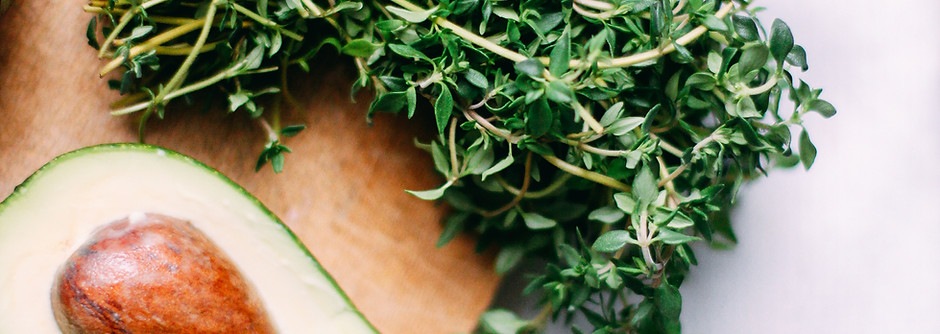How To: Know What You're Doing
- Dani Grady

- Sep 18, 2018
- 3 min read
Updated: Sep 26, 2018

So, let’s say you’re vegan and have been for years. Or maybe you’re just getting into veganism and trying to figure out if it’s really for you. Maybe you know people who are vegan, but could never see yourself taking on the lifestyle. Or even, maybe you’ve just heard the word “veganism” for the first time, and you have no clue what it means.
Regardless of where you fall on the veganism spectrum, this blog is for you.
I was first introduced to veganism about two years ago when my older sister began her transition from vegetarianism to veganism. Initially, I didn’t understand what she was and wasn’t allowed to eat, and I couldn’t grasp exactly why she was doing it. Fast-forward to the present, and I have come to appreciate the vegan lifestyle and respect the people who adopt it. I, personally, am still not vegan, but I’m looking to further explore the lifestyle, immerse myself in it more and, most importantly, spread knowledge about it to others.
So, with no further ado, we will start with the basics.
What is veganism?
Veganism is a lifestyle that seeks to avoid the exploitation of and harm to animals, according to The Vegan Society.
The vegan way of life is often associated with vegetarianism; however, veganism encompasses much more. Whereas vegetarians refrain from eating meat, poultry and fish, vegans take it a step further, and refrain from eating all animal foods, The Vegetarian Resource Group reports. This includes other animal products and by-products such as eggs, dairy products and honey.
Vegans also avoid using other products, aside from foods, that come from animals, according to The Vegan Society. These other products range from clothing and accessories made from leather, fur, silk and wool, to cosmetics derived from animal products, such as some soaps and lotions.
Now, you might be wondering, “what makes people give up all of these products?” Or, in my personal experience, what could be more important than eating cheese?
Why go vegan?
There are three main, well-supported reasons for why people choose to get into veganism: for the animals, for the health benefits and for the environment.
Preventing the abuse of animals is the key determinant in many people’s choice to go vegan, according to The Vegan Society.
“Being vegan is the single most effective way in which someone can protest the exploitation of animals everywhere—three times a day, when you sit down to a meal, you are making a powerful stance against animal abuse,” Dominika Piasecka, spokesperson for The Vegan Society, said.
As for going vegan for the health aspect, the Academy of Nutrition and Dietetics has ruled well-planned vegetarian and vegan diets “healthful” and “nutritionally adequate” for all stages of the life cycle. More importantly, though, the organization stated that a vegan diet may provide health benefits that can prevent and treat some diseases.
Becoming vegan also contributes to the sustainability of our earth. The production of meat, dairy and other animal products takes a toll on the environment, according to The Vegan Society, from the food and water needed to feed the animals, to the transportation and manufacturing processes required to get the food to consumers. A vegan diet, The Vegan Society explains, uses fewer natural resources and is associated with less environmental damage.
Being vegan might not be for everyone, but living a healthy, fulfilling vegan life can be of benefit to everyone.




I found it very interesting that you yourself are not vegan, but want to educate people on veganism and the benefits that come from living a vegan lifestyle. I myself am not vegan either, but it has always been something I found interesting and thought of maybe pursuing. It seems as if most people view veganism through a lens of "you can't eat anything" or "that's unhealthy" and I liked that you explained how it has health benefits and how it is environmentally beneficial. I'm glad you took the time to educate people on veganism and hopefully help someone transition to veganism if they so choose.
Thank you for your comment--I always love hearing of others who are vegan on campus! The main reason that I'm not vegan is honestly because I really don't think I like a single vegetable besides onions (I'm super picky), and I worry that if I became vegan I would end up going the unhealthy route in my avoidance of vegetables. However, it is something that I will definitely consider in the future once I'm able to experiment with different healthy vegan recipes. Also, it's funny that you mention "Forks over Knives" and "Cowspiracy;" I actually talk about both of those documentaries in my next blog that will be posted Wednesday night!
I enjoyed your insights and observations on veganism. Because I am vegan myself, I find it refreshing to see someone not only so well educated on the topic, but also choosing to inform others about the benefits of veganism. While I know most people seem to be a lost cause when it comes to giving up burgers or cheese, I still admire your passion to explain how veganism might not seem like it is for everyone, it can still benefit everyone. I think you did a pretty fair job of using some of the best information that is out there to use as an introduction to the blog. While I have not read through every one of your posts, I'm…